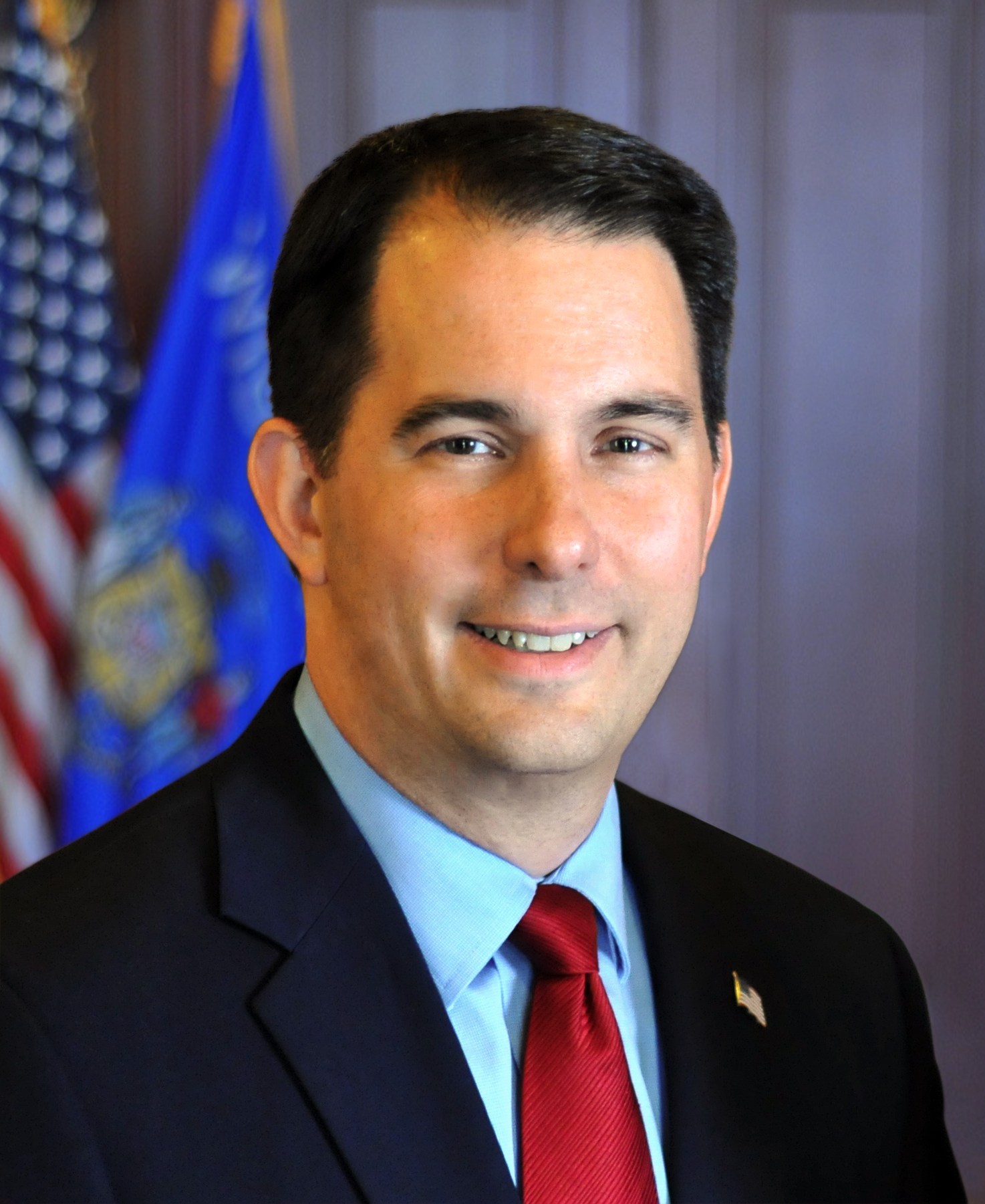Walker, Scott (1967-…), served as governor of Wisconsin from 2011 to 2019. Walker, a member of the Republican Party, previously had served as a member of the state Assembly and as Milwaukee County executive. Walker became well known after surviving a 2012 recall election—that is, a vote to decide whether he should be removed from office. Labor groups and other political opponents had gathered signatures to force the recall election after Walker signed legislation that reduced the power of unions.
Scott Kevin Walker was born in Colorado Springs, Colorado, on Nov. 2, 1967. He spent his early years in Plainfield, Iowa, where his father worked as a Baptist minister. The family moved to Delavan, Wisconsin, in 1977. In 1986, Walker enrolled at Marquette University, where he became active in student government. He left the university in 1990 without receiving a degree.

After leaving Marquette, Walker took on a financial development role for the American Red Cross. He won a special election to the Wisconsin State Assembly in 1993. He was reelected in 1995, 1997, 1999, and 2001. In 2002, he won a special election for Milwaukee County executive. He was elected to full four-year terms in 2004 and 2008.
Walker won election as Wisconsin governor in 2010. After taking office in January 2011, Walker worked for the passage of a bill that significantly reduced the rights of government workers to engage in collective bargaining. During collective bargaining, a union negotiates with an employer on behalf of all its members about such issues as wages, hours, benefits, and working conditions. Walker argued that eliminating the need to negotiate with workers’ unions would enable Wisconsin’s legislature to make deep budget cuts. The bill was passed by the state legislature in March and signed by Governor Walker. Thousands of public employees protested the new law, and opponents challenged it in the courts. In June, however, the state Supreme Court allowed the law to take effect.
In January 2012, opponents of Governor Walker and Lieutenant Governor Rebecca Kleefisch submitted petitions with enough signatures to force a recall election in June. Walker and Kleefisch defeated their Democratic opponents in the election. Walker gained national attention for becoming the first governor to win a recall election. He was reelected in 2014.
Early in 2015, Walker spoke at a number of conservative political conferences, generating speculation that he was exploring a run for the 2016 Republican presidential nomination. In March 2015, Walker signed right-to-work, also called freedom-to-work, legislation into law. The measure allowed workers choosing not to join private-sector unions to avoid paying the equivalent of union dues. In July, Walker formally announced his candidacy for his party’s nomination for president. Walker suspended his campaign in September, however, after acknowledging that his candidacy had failed to gain wide support.
In 2018, Walker campaigned again to be reelected Wisconsin’s governor. He lost, however, to Democrat Tony Evers, the state schools superintendent.
